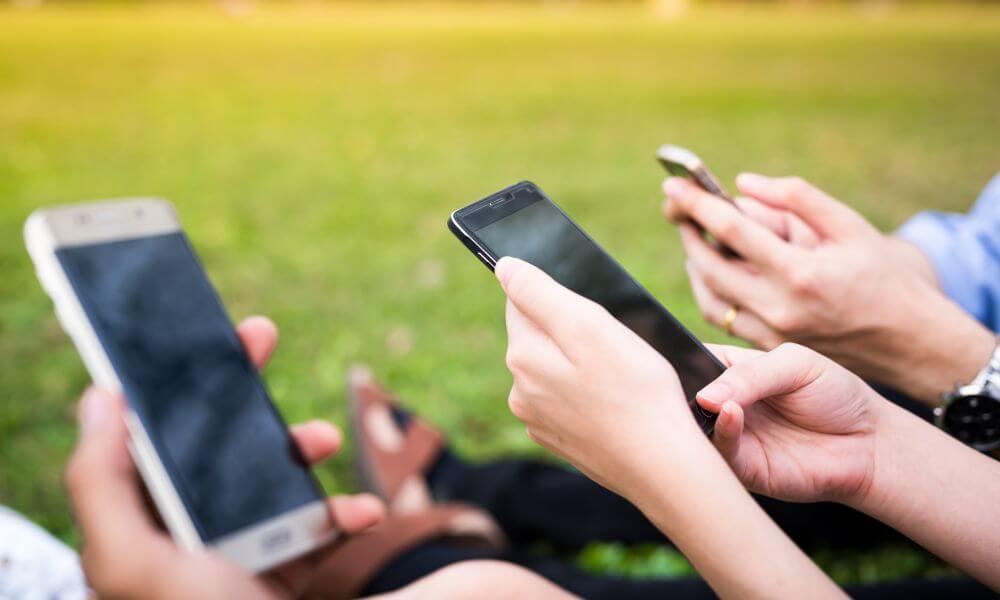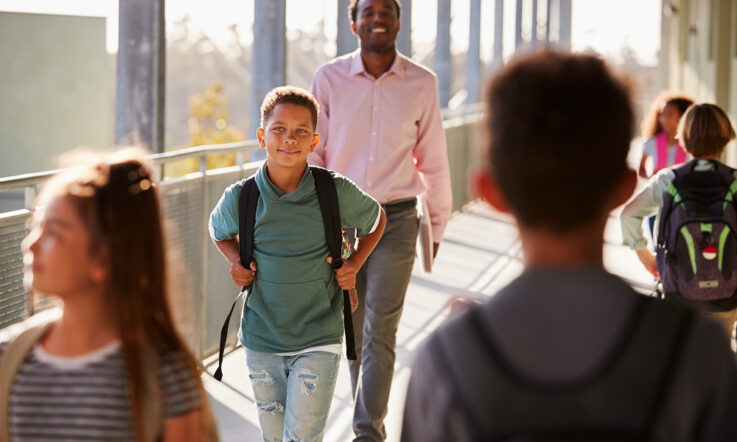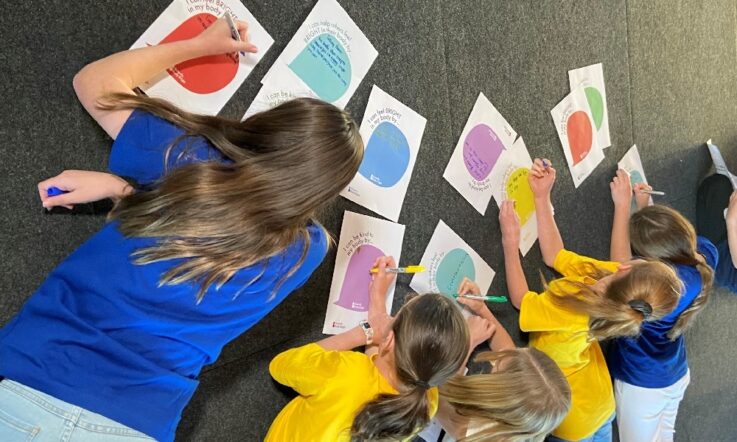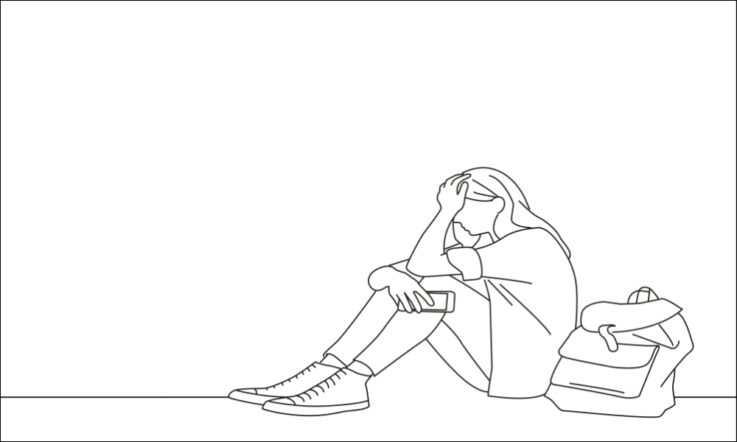Almost two thirds (62%) of 12-18-year-olds believe social media made them feel dissatisfied with their body, according to results from the Butterfly Foundation’s latest BodyKind Youth Survey.
Of nearly 3,000 young people surveyed across Australia, over half (57%) were dissatisfied with how their body looks. At the same time, 75.2% reported never or rarely taking a break from social media because it was affecting how they felt about their bodies (Butterfly Foundation, 2023).
Butterfly is the national charity for all people in Australia impacted by eating disorders and body image issues. In early 2025, their BodyKind Online Education program will be available to schools. It is the first body image program to show statistically significant improvements in social media literacy and self-compassion in young Australians, according to a pilot evaluation conducted by researchers at the University of the Sunshine Coast.
The evaluation results showed statistically significant improvements in social media literacy related to the critical assessment of appearance-focused media messages. It also showed improvements in social media behaviours and aspects of help-seeking.
Head of Prevention at Butterfly, Danni Rowlands says there are ever-changing needs around how we address positive body image and body image education, particularly with young people.
‘We were really keen to develop something innovative and interesting and engaging to meet the needs of schools and the community, specifically around the topic of social media and body image,’ she tells Teacher.
An interactive and engaging program
The BodyKind Online Education program was developed after successfully applying for a grant through the eSafety Commissioner’s Online Safety Grants Program in 2022.
The program includes 3 modules for years 7 and 8, and years 9 and 10. The interactive and engaging prevention-focused education program incorporates videos, quizzes, and other activities to safely explore topics such as teasing, misinformation, AI and the role of algorithms.
Rowlands explains that each student has their own unique experience, where they’re guided through information and have a range of different engagement activities. ‘At the end of every module there is a class activity just to bring everybody together. There are also some suggested activities to do at home,’ she explains.
The program provides positive strategies like critical thinking, self-compassion, online safety features, help-seeking and reporting. It also includes digital resources for educators, parents and caregivers.
Rowlands says that while this will be available in schools, ultimately, parents are responsible for their child’s use of social media. ‘We've tried to develop some really user-friendly information and resources that can support families and parents to support their young person as well,’ she adds.
The program is designed with an awareness that not every young person uses social media, and that many schools don’t permit phones in the classroom or don’t want social media to be used at school.
‘The way that the program is set up is it’s to talk about social media and to try to present it in a really engaging and exciting way for young people. But, we don’t need students to be social media users, and we definitely don't need them to have their phone or social media access while participating in the program,’ Rowlands adds.
The development of the program
An extensive literature review was conducted prior to any content development. Rowlands explains that they first needed to understand its feasibility and whether it could easily be implemented in the classroom.
‘We also had to establish an expert advisory group. They were experts from the field of research, education, online safety, as well as body image research and also eating disorder clinicians. The program had rigorous eyes on it,’ Rowlands explains. They also established a youth advisory group of 13 students who provided input and expertise along the way.
The pilot evaluation involved nearly 500 students across 4 secondary schools in Victoria and Tasmania. They represented all 3 school sectors – Catholic, independent and public, as well as single sex and co-educational settings. ‘We had a really great breadth of student participation across year 8 and year 9 as well, so both programs were able to be trialled,’ Rowlands shares.
The evaluation aimed to understand impact. ‘Ultimately, we wanted to see if we saw any change from the social media literacy skills of young people, particularly when it came to how they viewed and how they absorbed appearance-based content because that's obviously most specific to our area, which is body image,’ Rowlands says.
‘We also wanted to understand attitudes towards help seeking to see if by participating in the program, young people were more likely to reach out for help or have increased awareness of where they could access help – so they were really the 2 main things.’
Results of the evaluation
The evaluation showed that BodyKind Online Education resulted in significant improvements in social media literacy skills that related to the critical assessment of appearance-based and appearance-focused media messages.
‘We also found significant improvements in self-compassion,’ Rowlands says. ‘Self-compassion is an evidence-based strategy that can support young people's wellbeing and their mental health. That was a little bit of a surprise for us, a really wonderful surprise, because obviously those things are really tricky to measure.’
Students reported that they enjoyed the interactivity of the program, and the focus on body image. They were asked to provide a star rating on how they found the modules, and could also write a review.
‘We'll secure that information ongoing over time, which will help us with continuous improvement,’ Rowlands adds.
BodyKind Online Education will be available for schools in 2025. To find out more or to register your interest, visit their website.
For support with eating disorders or body image concerns, call Butterfly National Helpline on 1800 ED HOPE (1800 33 4673) or visit www.butterfly.org.au to chat online or email, 7 days a week, 8am-midnight (AEST/AEDT).
References
Butterfly Foundation (2023). Body Kind Youth Survey: Your body image, Your voice 2023 report. Retrieved from http://www.butterfly.org.au/youthsurveyfindings
Think about the students in your class. How do you address issues of social media and body image with them? What are some of their key concerns when it comes to these 2 issues?
The evaluation of the BodyKind program found significant improvements in students’ self-compassion. How do you practice self-compassion in your classroom? Can you think of ways that you could embed this concept more frequently in your classroom?



